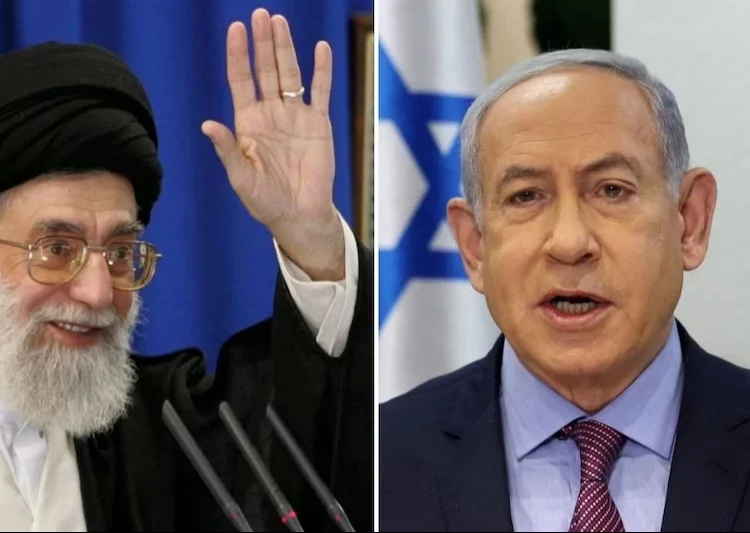Nigerian experts in international relations have joined world leaders on Sunday to express concerns over the drones and missiles launched on Israeli territory by Iran in the Islamic Republic’s first direct attacks on the Jewish nation as threats of war loomed.
Iran said it launched the missiles on Saturday to retaliate alleged Israeli attacks on its Consulate in Lebanon, which killed its Generals early this month, even as Israel has neither confirmed nor denied the attack.
However, the Israeli forces in a statement on Sunday said the “vast majority” of missiles launched from Iran were intercepted outside of Israel’s borders, stressing that only a few landed in Israeli territory and they caused minimal damage.
The military face-off between these arch-enemies was sequel to the ongoing war Israel launched on Hamas militants in Gaza, following the October 7 attacks against Israel by the Palestinian group, which killed over 1400 Israelis and the abduction of over 200 others.
So far the Israeli war in Gaza has led to the killing of about 32,000 people including civilians while 70,000 persons have been injured, according to reports released by Palestinian Health Ministry controlled by Hamas.
Speaking to LEADERSHIP on Sunday, a former Nigerian High Commissioner to Singapore, Ambassador Ogbole Ode, described the situation as unfortunate and called for de-escalation of the conflict.
“I think the effort by world leaders is to do everything possible to de-escalate the situation there, because of the likely far-reaching implications, not only for the region but for the global community at large.
“With what is happening in Ukraine which has not been brought to an end, the world cannot begin to witness another situation in another part of the world. Remember there is also a war going on in Sudan,” Ode said.
He added that with the intervention of the United Nations, hopefully the tension would be doused but warned that if the UN is not able to bring the belligerent sides to cool their temper, the world might be heading to another kinetic situation.
On the implications, he said, “For the Middle East, it will be another war too many and it will increase tension between Israel and its Arab neighbours and the Muslim World in a larger global ramification.
“Also the Middle East being the nerve center of global oil distribution could spike the price of crude oil in the world energy market, which will benefit crude oil producing countries at the cost of human lives,” the diplomat noted.
International affairs expert and a lecturer with the International Institute of Journalism, Dr, Austin Maho, said the barrage of suicide drones against Israel by Iran on Saturday night which were all intercepted and destroyed before they could cause any damage, opened the floodgate for diplomacy to triumph.
He said “for now the tension in the Middle East which was at feverish peak a few days ago has thawed and diplomacy seems to have prevailed. The Israelis are not expected to respond.
“Iran celebrated the attack as a victory. Apart from responding to the bombing of its embassy in Lebanon, it is the first direct attack it has ever launched against Israel. The world on the other hand is relieved that the situation did not escalate further.
“The outcome can be seen as a victory for diplomacy as Iran has committed not to launch further attacks against Israel,” Maho said.
He added that the larger implication is that the Israelis should by now know that the world is growing weary of its victimhood mentality while it unleashed untold horror on hapless Palestinians in the Gaza Strip.
He said, “The current tension in the Middle East is the direct consequence of the atrocities of the Israeli Defense Force in Gaza. The global community must hold Israel to account. The United States cannot continue to support the Israelis while innocent women and children are being slaughtered daily including journalists and aid workers without consequence.
“The United Nations has passed a resolution calling for a ceasefire in Gaza, and access to humanitarian aid which is held in scant regard by the Israelis as it continues with its genocidal campaign.
“The larger implication is that the United Nations will eventually lose its powers of arbitration if the Israelis continue to violate UN Security Council resolutions without consequence,” Maho added.
International Constitutional Law expert, Livingstone Wechie in his reaction said the tension in the Middle East occasioned by the Israel and Hamas war should be reaching a point of resolving the contentious issues for the sake of its humanitarian implications.
He said however that the recent retaliatory attacks by Iran on Israel following the launch of three hundred rockets and missiles into Israel could turn the situation into a fog of war if not properly handled.
He said, “It may be viewed that the end of the war is not in sight yet because it is evolving into a full blown regional conflict. This new turn has shown that the style of war between Israel and its neighbours is changing as the final implications may be difficult to be determined.
“This is the longest time Israel has ever spent in a war with its enemies and it is instructive. The fact is that because this particular retaliation is emerging from the Iranian Consulate attack by Israel in Damascus, some Israeli foreign representations may be future targets.
“It is also to be seen that this war is a quest to prove territorial Sovereignty by the affected States. There could be implications for the global community. The world is at the verge of a precipice and so caution must be applied irrespective of the interests,” Wechie said.





